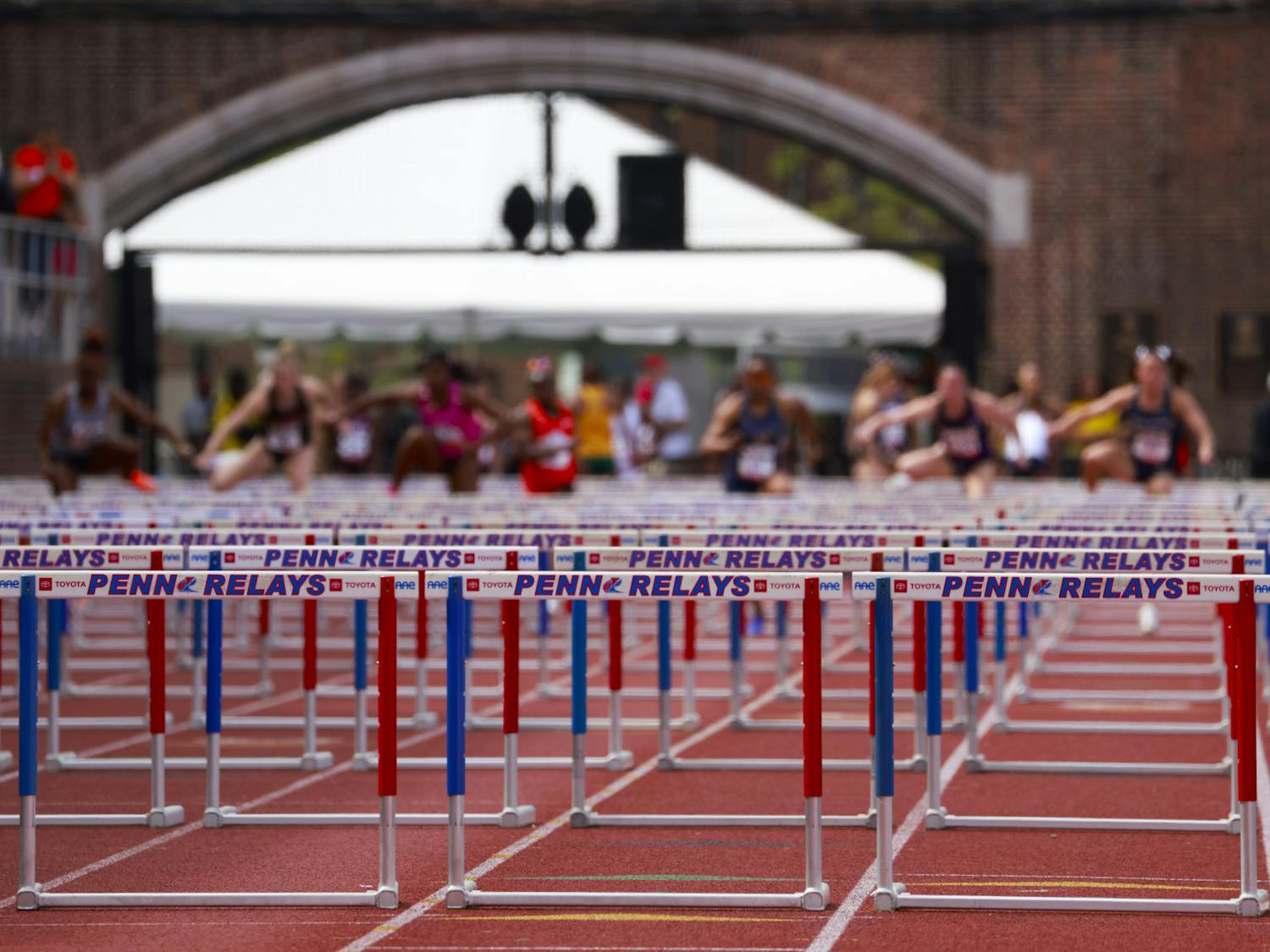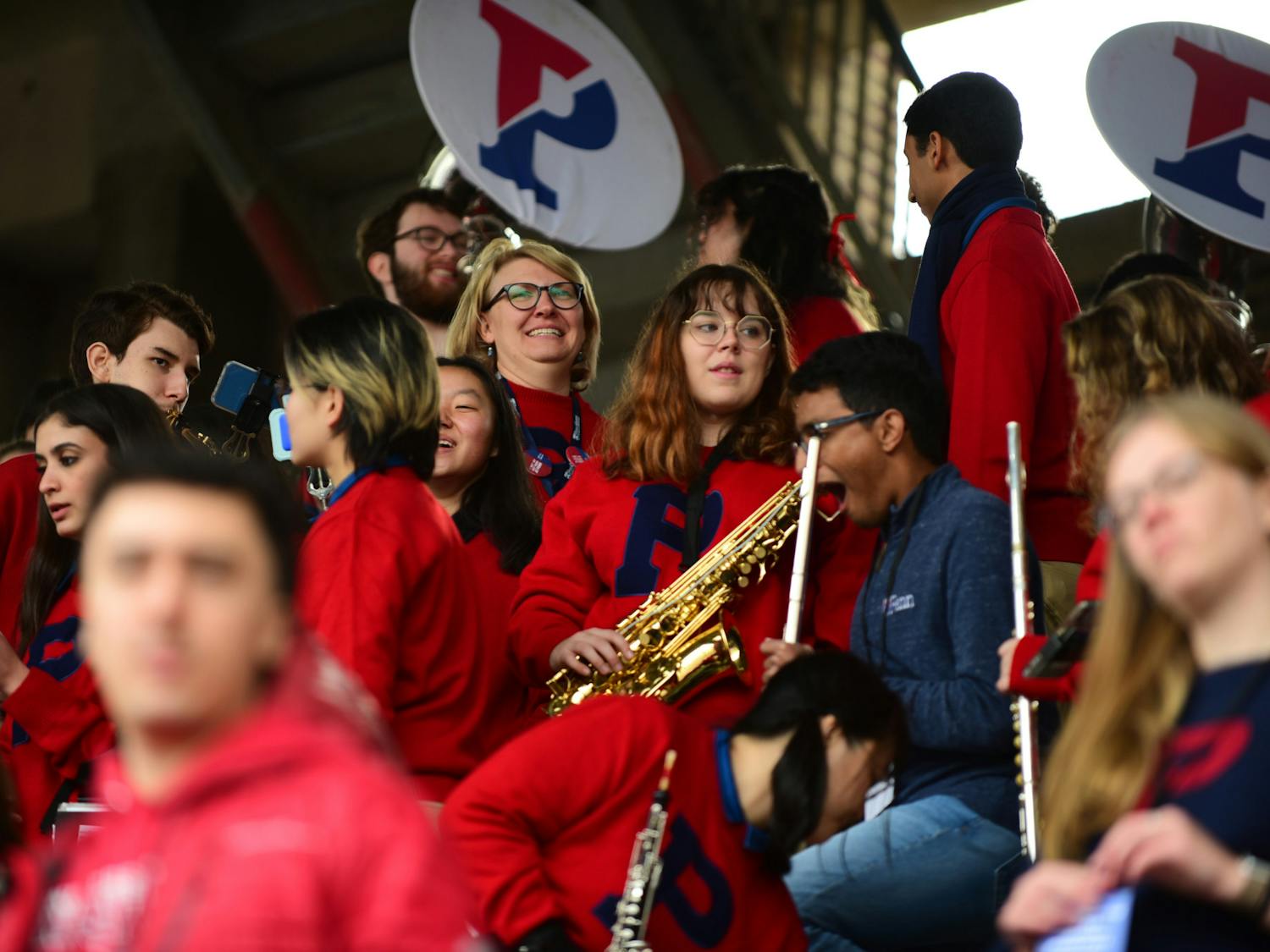On Dec. 30, Penn Athletics announced that there would be a ban on fans attending games, meets, or matches during the winter sports season until further notice.
Both Penn’s men’s and women’s basketball teams are currently above .500 in Ivy League play and look to have a shot at the NCAA Tournament come March, but fans won’t be in the arena to cheer them on, at least for the time being.
And there’s certainly a good reason for this: with rising rates of the COVID-19 Omicron variant, it’s hard to justify packing the Palestra with students. During a normal semester, as was somewhat the case during the fall, Penn students could attend Quaker sporting events free of charge. The same went for other Ivy League schools, including Harvard, Yale, and Columbia.
However, with the newly enacted spectator ban, students can’t go to the Palestra or any other Penn sporting facility, and their only option for watching games is on their computers or their televisions.
Here’s where the problem arises: currently, there is no means by which Penn students can watch games played on Penn’s campus, other than by paying $6.99 a month for ESPN+, by paying for a service called StretchLive, or by getting some sort of Disney streaming bundle. Granted, there are some games that get played on ESPNU or are shown locally, but for the most part, the Ivy League’s 2018 deal with ESPN meant that most games would be exclusively available on the network’s streaming platform.
Having the only means by which students can watch games that take place on campus behind a paywall is ridiculous and goes against years of university practice. It’s unusual by typical collegiate standards, which dictate that there be a student section in the arena that they can get tickets to for free. Without a free student section, a free livestream seems like a reasonable trade-off.
To be fair, there wasn’t a ton of excitement across the student body for these teams to begin with, but making the students that do care pay to watch these games is not going to do wonders for the fan base that currently exists.
The issue then becomes what exactly the solution for this problem is. Simply allowing Penn students to access games for free may seem hard given ESPN’s rights to the content, but in reality, it may not be all that inconceivable.
Penn currently offers its on-campus students free Xfinity TV accounts (which includes ESPN and ESPN2) that essentially grants students a cable subscription. If it’s possible to get students hundreds of channels, it shouldn’t be too much to ask to get them access to the games that apply specifically to them.
The argument isn’t that Penn should pay for each student to have an ESPN+ account, but that if games were free for students when they could be at the arena, the same precedent should apply when they’re not allowed in. Having this be clear makes it sensible that ESPN shouldn’t charge Penn, or other Ivy League schools, to allow its students to watch home games for free, considering that the network was content with this setup prior to the attendance ban.
And at the end of the day, it’s just collegiate social contract that if a game is played on a school’s campus, students ought to have free access to watch it. COVID-19 obviously makes a lot of this complicated, but the principle should still apply that if a game is on Penn’s campus, students should be able to watch it without charge, especially as both basketball teams make potential runs at the NCAA Tournament.
This issue is not an imperative one to all Penn students; there are certainly more pressing issues out there, and the percentage of Penn students that care about the school’s basketball teams is slim.
But for the ones that do care, the current inability to watch games played in the Palestra without charge is frustrating, and without recent precedent.
MATTHEW FRANK is a College sophomore from Miami studying communications and is a Senior Sports Editor for The Daily Pennsylvanian. He can be reached at frank@thedp.com.









